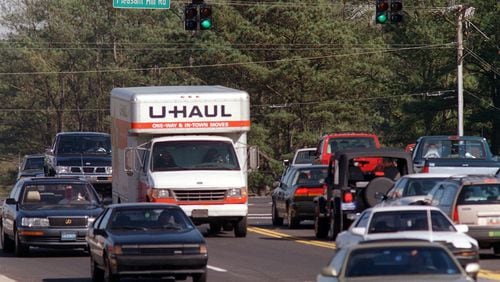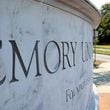In a laudatory post regarding the local nine – title: "The Resounding Success of the 2018 Braves" – Matthew Trueblood of Baseball Prospectus offers one caveat amid the kudos: The offseason dual salary dump with the Dodgers might crimp the Braves' style in the very short term. Writes Trueblood:
“By swapping Matt Kemp for (Brandon) McCarthy and (Adrian) Gonzalez, Atlanta’s new front office cleared some $20 million from the 2019 payroll and loaded it instead onto the 2018 ledger. That dead money -- and dead money it mostly is, as Gonzalez was released right away, and McCarthy is in the starting rotation only provisionally -- obviously hasn’t unduly hurt the Braves this year, not only because they didn’t intend to compete for a playoff berth but because recruiting any substantial talent this winter would have been a daunting task. Between the team’s poor play during a very voluntary rebuild and the tumult created by the scandal that savaged their front office, they had very little to offer even the few impact free agents who were available.”
The catch here is that these Braves, with 30 percent of their season gone, do bear the look of a playoff contender. Even after dropping two of three in Philadelphia and being shut out in the losses, they’re in first place. (They no longer have the National League’s best record, the Brewers having won again last night.) As someone who blathered just yesterday about the Braves needing to act now to bolster postseason chances, Trueblood’s missive struck a gong: Having to pay Adrian Gonzalez – who’s playing for the Mets, FYI – and Scott Kazmir, who was also part of the trade, could serve as a tangle.
Kemp is making $21.75 million this season and is due the same next year. Gonzalez was under contract for $22.35 million when the Braves dumped him in the immediate aftermath of the trade. Kazmir was lopped in March; he’s making $16 million for doing nothing. The Dodgers are paying $4.5 million of McCarthy’s $11.1 million salary, and he has won five games -- four against the second-place Phillies, who wouldn’t be in second place otherwise -- despite having the staff’s highest ERA.
The point being: In shedding salary for 2019, the Braves added roughly $23 million for 2018 -- the equivalent, money-wise, of two Nick Markakises. That’s $22 million they won’t be able to spend this summer on a big-ticket rental, not that any rental is apt to cost $22 million over a half-season. Still, you wonder: If Alex Anthopoulos knew then how good his inherited team would turn out to be, would he make the same trade again? (Maybe. He might also say, “Eh, you can keep Kazmir.”)
Taking the macro view, Trueblood believes that not having to pay Kemp next season clears the track for an offseason -- lots of big names will be free agents! -- that could see a consolidation of gains. “The Braves (are) serious threats to make the playoffs this season, even though the extra money on their books right now holds them back slightly,” he writes. “And when that money is cleared and they can go looking for a capstone to their rebuild this winter, the balance of power in the NL East could shift in a lasting way.”






